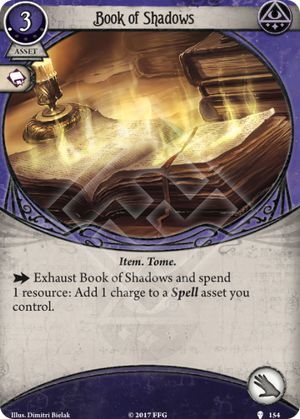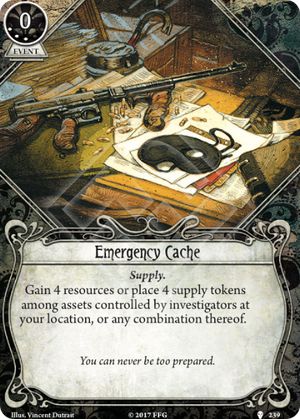
There are cards in this game that are so useful that you probably include them in nearly every deck you build. Then there are cards that are so hilariously bad that they'll collect dust in your binder until the end of time. Of course, there are also cards like Hired Muscle that are so nuanced that it's quite difficult to assign value without taking a much closer look. So let's do our due diligence with this boozy brawler and see what we can come up with.
There are three positive things about this card, and there are three things that are not so great. On the plus side:
- Static +1 () bonus. Nothing wrong with that!
- It's cheap to play - only 1 resource!
- Can take a whopping three damage - pretty good meatshield for the cost!
On the other hand:
This last point is a real problem. Every investigator who can include Hired Muscle can also include Leo De Luca. If you're playing Leo (and why wouldn't you?), you don't want to have any other allies in your deck, as Leo really isn't expendable once he's on the board, so you'd never get to play those theoretical other allies anyway.
This would pretty much be the end of the conversation if it weren't for Charisma. But that card does exist so we can't wrap things up just yet.
At this point, I would like to say that I am not advocating purchasing Charisma just so you can add Hired Muscle to your deck. That would be quite irresponsible on my part. Instead, I think we need to examine Hired Muscle on a per-investigator basis to see if it has a place alongside other secondary allies.
-
Lola Hayes I'm still trying to wrap my head around how Lola works, but since she has access to every ally in the game, I really don't see Hired Muscle being anywhere close to the top of that list.
-
Wendy Adams Absolutely not. Boosting her abysmal () by 1 is absolutely not worth including this card under any circumstances. Cat Burglar is a far superior fit for Wendy's playstyle. If that weren't enough, she also has access to Peter Sylvestre •• who boosts two stats that are actually relevant to Wendy. Hard pass.
-
Sefina Rousseau Unlike Wendy, Sefina actually has the economy to reliably afford this guy, especially once she upgrades to a Hot Streak or two. But like Wendy, Sefina probably isn't interested in the combat boost, especially since she has superior options for dishing out damage even at level 0.
-
"Skids" O'Toole For Skids, this card's main competition is probably Beat Cop •• . The latter is more flexible, as it can soak more than 1 horror, and can dish out damage in addition to tanking it. But Beat Cop doesn't come with Hired Muscle's cheap install cost, so it can sometimes be tricky to get into play if you don't draw your Hot Streaks. And of course, Beat Cop •• does cost an additional experience over Hired Muscle. All things considered, the police are probably a better upgrade choice for Skids overall - but having one of each (in addition to your two Leos) is an option worth considering if you need that one XP for something else and/or want to smooth out your resource curve.
- Jenny Barnes Unlike Skids, Jenny doesn't have access to Beat Cop ••, so Hired Muscle initially seems to be a more attractive choice, assuming you are specifically going for a bruiser build with your dilletante. Indeed, Jenny has the resources to pay for this card and can use Lone Wolf to diminish its penalty even further (With Skids, Lone Wolf gets you half of the resources you'd get otherwise, but with Jenny it's 2/3). I'd perhaps be even more inclined to consider this card in a game with fewer players, where Lone Wolf would be triggering more often. Jenny is the only investigator where I - dare I say it - might even consider purchasing two copies of this card. Let me re-emphasize that you should really only consider Hired Muscle in a very specific Jenny build, where she's functioning as an ersatz Guardian. If you're going to be funneling your resources into Streetwise in order to discover clues, then Hired Muscle really is a waste of money and XP.
One other subtle observation - if you plan on using Hired Muscle mainly as a cheap meatshield, it is worth pointing out that it performs better in scenarios with that have lots of enemies that don't deal horror such as spoiler and spoiler.




